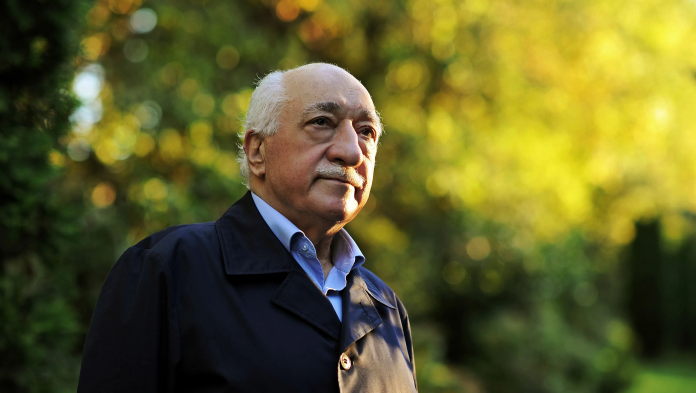A panel held at Oxford, one of the prestigious universities in the UK, delved into Fethullah Gülen’s stance against violence. The panel, which took place on Thursday, October 26, unfolded in three sessions with participation from academics and researchers hailing from seven different countries. The first session scrutinized the dynamics behind why, despite the persecution and humiliation endured by the Gülen Movement in the past decade, it did not resort to violence, contrasting with radicalization theories.
In the second session, Pakistani academics discussed the contributions of Gülen Schools to peace in Pakistan during the years 1995-2018 and their promotion of a culture of non-violence. The final session involved the presentation of research findings on the contribution of the Gülen Movement’s Formal and Informal Educational Institutions in the United Kingdom to a culture of non-radicalization, an investigation that has been ongoing for two years at Regent’s Park College.

THEY AVOIDED TERRORISM
During the first session, Dr. Kamil Yılmaz presented the results of his research conducted at Swansea University in Wales, titled ‘Religious and Moral Themes Preventing Radicalization in Thought and Action.’ Dr. Yılmaz pointed out that radicalization theories prioritize risks like political persecution, captivity, torture, social pressure, and forced migration. He noted that these risks are insufficient to explain why Gülen members, who have been exposed to all of these, did not radicalize.
Yılmaz stated that his research offers insights into how broader populations can build resistance against radicalization. His thesis, titled ‘Understanding the Concept of Non-Radicalization: An Example from Turkey,’ is the first study to establish the concept of ‘non-radicalization’ as an academic field.
GÜLEN RESCUES ISLAM FROM RADICALISM
Dr. Yakov Nagen, in his presentation during the first session, argued that those who resort to violence in the name of Allah are distorting their religions. He emphasized that Fethullah Gülen serves as a barrier against radicalization by returning to the original sources of religion rather than reforming it. Haham Nagen, President of the Ohr Torah Stone Blickle Interfaith Dialogue Institute, has been working to build bridges of dialogue between Jews and Muslims for years. He stressed that Gülen Hocaefendi not only influenced those around him but also transformed his own views by revisiting the original sources of religion and engaging with others. Nagen suggested that this model developed by the Gülen Movement should be emulated and universalized.

Dr. Recep Doğan, the final speaker in the first session, explained the religious foundations of non-conflict and non-radicalization in Gülen’s teachings. In his presentation titled ‘Global Terrorism and Islamic Radicalization: Analyses from the Perspective of Fethullah Gülen,’ Doğan emphasized Gülen’s stance that ‘a Muslim cannot be a terrorist, cannot endorse terrorism, and independence or liberation struggle cannot be conducted by terror that targets the lives of innocent people.’
The second session of the panel, moderated by Prof. Dr. Paul Weller, a retired faculty member of Regent’s Park College, carried the title ‘Non-Radicalization through Education: PakTurk Schools 1995-2018.’ In this session, the contribution of PakTurk Schools in Pakistan to peace and their preventive effect against radicalization were discussed. Pakistani academic Dr. Seema Arif also spoke in this session. Arif explained that before the establishment of PakTurk schools, ‘schooling’ was used as a means of radicalization in Pakistan, and argued that Gülen schools have fundamentally changed this perception.
Dr. Arif examined the radicalizing madrasas and the Gülen schools’ systems through a series of variables such as educational curriculum, parent relationships, and extracurricular activities, showing that the systems of the two are entirely opposite. She pointed out that the credit established during the years when PakTurk schools were run by the members of the movement is now being used by Maarif Schools, and that the love left behind by these teachers is sufficient even for the Maarif period.
WE LEARNED TO BE GOOD PARENTS FROM THEM
Dr. Naveed Ahmad, a research journalist who spoke about PakTurk Schools, entrusted both of his children to Gülen schools, stated that the success rate of the schools is dazzling and that they not only educate students but also their parents. Ahmad said, ‘We learned to be good parents from PakTurk teachers,’ and emphasized that the success of their children, who are both studying at universities in the UK, is entirely the work of PakTurk teachers.
Farman Ullah Anjum, who was also a parent of PakTurk schools and served as the Chairman of the Pakistan Higher Education Council for many years, recalled the scenes of altruism shown by the teachers of Gülen schools when PakTurk schools were closed. Anjum mentioned that during the period when teachers in Pakistan were waiting to be deported or arrested at any moment, they stayed in different addresses every night and had nothing of their own, yet parents collected donations and took food packages to an orphanage. He asked, ‘Now I ask you, what can be normal about these people winning a place in our children’s hearts?’
Meral Kaçmaz, former Biology teacher at PakTurk Schools, recounted that Gülen schools opened campuses even in the most underdeveloped and prone-to-radicalization regions of Pakistan and that they traveled to mountain villages to convince parents to educate their daughters. Kaçmaz, who reminded the slogan of PakTurk Schools, ‘Those taught with love are never forgotten,’ pointed out that they were deported from Pakistan with handcuffs on their hands and sacks over their heads, and while she was in prison in Turkey, she realized that nothing they did in Pakistan was wasted when she met a woman who was the mother of two and had joined Jabhat al-Nusra in Syria.”
Source: politurco.com



